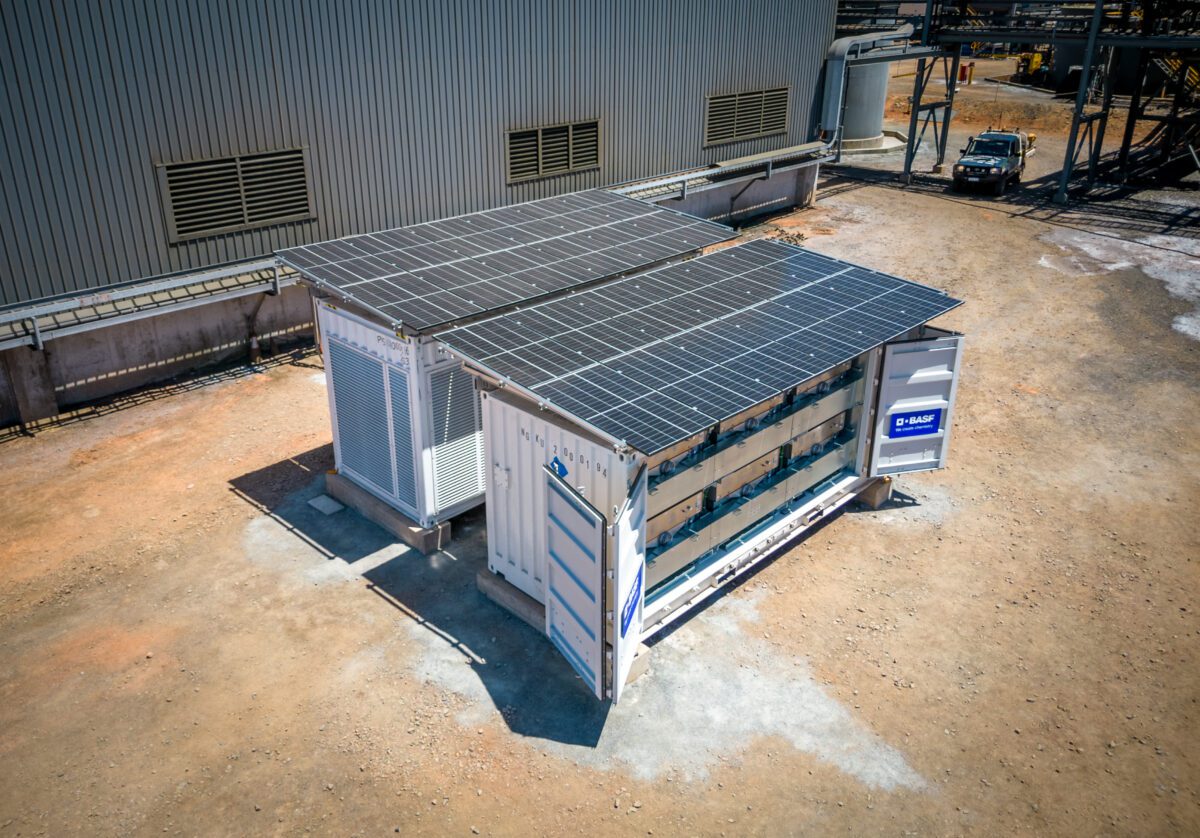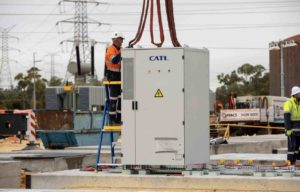Researchers from the Queensland University of Technology’s National Battery Testing Centre (NBTC) have deployed Australia’s first large-scale sodium-sulfur (NaS) battery at a nickel-copper-cobalt mine in WA.
The NaS BESS is a scalable modular base unit of 250 kW/1.45 MWh, designed to be installed at a gigawatt scale, making it suited for large-scale energy storage applications of six hours or more.
According to Dr Joshua Watts, NBTC QUT Project Lead, the NaS BESS is capable of functioning in extreme heat without the need for air conditioning – making it a prime candidate for remote mining sites, many of which operate in some of the harshest environments on the continent.
“They’re well suited to remote and hot climates because they operate in hot conditions already, at around 300 degrees Celsius,” Watts explained. “So, they perform really well in hot, arid climates.”
NaS batteries are also capable of storing energy for longer durations (more than six hours) than, for example, lithium batteries.
“With the clean energy transition at the moment, long duration storage is really important to be able to offset energy generated during the day for use at night, so we really need to be investigating how we can implement commercially mature, long-duration storage technologies,” Watts said.
The deployment of the demonstration unit at the Nova mine near Kalgoorlie was led by mining company IGO, and German chemicals company BASF SE, with BASF distributing the NaS batteries.
The battery, installed by BASF’s Australian construction partner Allset Energy and purchased from Japanese company NBK, has been up and running since mid-February.
Established at QUT, the NBTC is part of the Future Battery Industries Cooperative Research Centre, a group of fifty industry, government and academic partners in the battery sector.
The NBTC research team, along with BASF and Allset Energy will remotely monitor the battery’s performance, while researchers at the University of Western Australia will use performance data to model the battery to better understand how it could theoretically be utilised within Australia’s power infrastructure.
“These field deployments help build market confidence, train our workforce and build capability in the contracting community,” said FBICRC CEO Shannon O’Rourke. “The NaS battery technology is commercially mature and has been successfully installed and operated at over 250 sites worldwide over the past 20 years.”
Sodium-sulfur batteries are not new; the first NaS battery was developed by Ford Motors in the 1960s, before it was sold to NGK.
Allset Energy’s Managing Director, Thomas Buschkuehl, said the NaS battery offered a solution to support round-the-clock, carbon neutral operations for large commercial, industrial and utility scale applications.
“As Australia pursues its renewable energy targets, this long-duration energy storage solution enables a higher penetration of renewables while stabilising the electricity grid,” he said.










